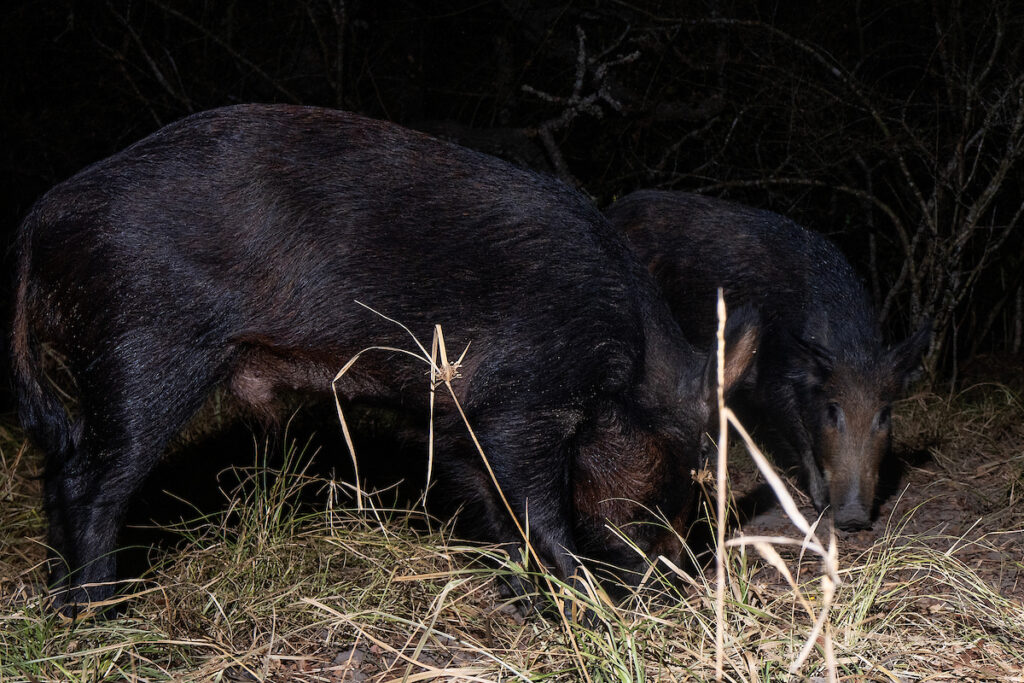- La Feria Community Holds Succesful Business Mixer Event
- Little Nashville to Take Place in Downtown Mercedes
- Lions Basketball Captures District Gold
- La Feria ISD Students Compete in Regional Chess Tournament
- Lions End First Half of 32-4A on a High Note
- La Feria ISD Held Another Successful Parent Conference
- Strong Appearance for Lions at Hidalgo Power Meet
- LFECHS Students Get to Meet Local Actress
- Students Participate in Marine Biology Camp
- Two LFECHS Students Qualify for All-State Band
Preempting African Swine Fever In Texas With Research
- Updated: December 22, 2024
Scientists assess a tick’s potential to spread disease in Southern U.S.

By Gabe Saldana
As feral hog populations increase in Texas and the U.S., they create desirable conditions for disease-carrying ticks and increase the risk for an outbreak of African swine fever virus, ASFV.
To ensure the devastating ASFV stays out of Texas and the Southern U.S., a multi-institution research project led by Texas A&M AgriLife Research will assess the potential, or vector competency, of a southern Ornithodoros turicata tick to transmit the disease.
The nearly $1.5 million project is supported by the U.S. Department of Homeland Security Science and Technology Directorate through Cross-Border Threat Screening and Supply Chain Defense, CBTS, a DHS Center of Excellence within AgriLife Research.
Results from the project will fill critical knowledge gaps in the vector competency of ticks in the U.S. It will be an early key step toward research-based solutions that keep Texas and the Southern U.S. free of ASFV.
Assessing tick vector competency for ASFV transmission in Texas
“These ticks are in several southern states and are common in Texas,” said Meriam Saleh, Ph.D., clinical assistant professor in the Texas A&M College of Veterinary Medicine and Biomedical Sciences. Saleh is the project’s principal investigator.
“Laboratory studies using a subspecies of these ticks, which originated in Florida, demonstrated high vector competency for ASFV to pigs,” she said. “Our research aims to confirm whether the Texas ticks carry the same ability to transmit the disease.”
Dee Ellis, DVM, AgriLife Research veterinarian within the Texas A&M College of Agriculture and Life Sciences Department of Entomology., and Scott Kenney, Ph.D., of Ohio State University, join Saleh as co-principal investigators.
The team will evaluate the biology and transmissibility of different ASFV strains and genotypes in ticks. They will determine the ability of other species to host or spread ASFV from ticks in the U.S.
Preempting an outbreak with research
African swine fever, as its name suggests, is a tick-borne DNA virus originating in Africa, where Ornithodoros moubata ticks persist in a continuous cycle with wild warthogs.
In Texas, unique challenges come from a host of issues: the presence of potential tick vectors, the expanding feral swine population, expansive suitable habitat for ticks and feral swine, commercial swine operations and the U.S. border with Mexico among others.
The U.S. Department of Agriculture Animal and Plant Health Inspection Service estimates that an ASFV outbreak in the U.S. would devastate the U.S. pork industry with a 50% drop in hog prices, a halt in pork and pork product exports, as well as significant job losses and culling of the animals.
In Texas, according to the Texas Pork Producers Association, feral pigs outnumber domestic swine at least 3-to-1.
Adult ticks have been documented to live for years between feedings. Several species of Ornithodoros ticks in North America have demonstrated African swine fever transmission to swine in laboratory settings.
“Leading-edge discoveries and innovation will be the keys to staying ahead of ASFV for Texas and the Southern U.S.,” said Heather Manley Lillibridge, Ph.D., executive director of CBTS. “Collaborations across multiple institutions provide us with the resources and expertise for continued success.”




